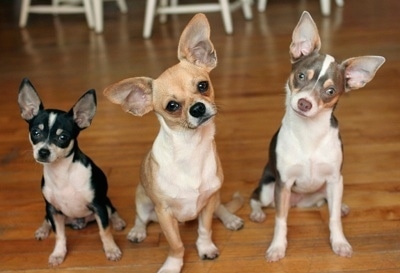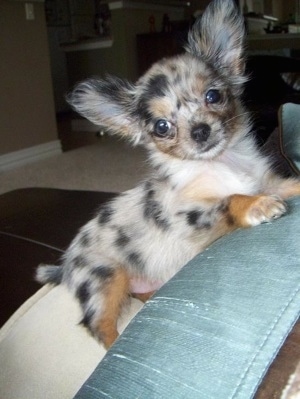Just like all small dog breeds, Chihuahuas oftentimes have difficulty becoming potty-trained. But don't let this hinder your decision to own one. The benefits owning one outweigh this. Just follow these guidelines to help ensure your Chihuahua becomes potty-trained.
The best time to start potty-training your Chihuahua is when they are a puppy. But, keep in mind that puppies bladders are not fully developed until later.
* Take them outside to potty often. I recommend once an hour, every hour, for a puppy.
* Always take your Chihuahua to the same area outside. They will recognize the area and are more likely to go potty where they have already been.
* Say a simple phrase, such as "go potty" when you take your Chihuahua outside. They will start to associate the command with the action. Remember to only say one specific phrase, and keep saying it while you are outside. Saying different phrases can confuse your Chihuahua.
* When your Chihuahua goes potty outside, give them a doggie treat, and lots of petting. As you probably know, they love treats and will do about anything for them, including going potty.
* Unfortunately accidents will happen. When you see your Chihuahua going potty inside the house, just speak loudly "STOP", or "NO", and immediately take them back outside. You should never physically hurt your Chihuahua or stick their nose in it. This can have an adverse affect and really disrupt the training process.
* You should put your Chihuahua in a crate at night times and when you are away from home until they are potty trained. Most dogs don't want to sleep in their own pee, so they will hold it. When you wake up or get back home, you should take your Chihuahua outside first thing.
* Monitor how much water your Chihuahua is drinking. Some dogs will literally drink until the bowl is dry, and what goes in must come out. You shouldn't give your Chihuahua any water right before you put them up in their crate.
Potty-training your Chihuahua doesn't have to be a headache if you follow these steps. Just be patient, consistent, and success will follow!



